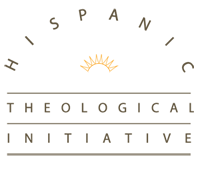María M. Carrión

María M. Carrión
María M. Carrión teaches Religion and Comparative Literature at Emory University. She studied Classics at the Universidad Complutense de Madrid and graduated with a B.A. in Art History and Criticism from the University of Puerto Rico. She completed an M.S. in Art Education and an M.A. in Spanish from the University of Tennessee, Knoxville before completing her Ph.D. in Spanish at Yale University. She specializes in the cultural and literary production from 16th- and 17th-century Spain, inquiring about sacred and religious spaces, dramatic theory and performance, religious and legal writings and practices, and architectural theory and history.
Her most recent work has dwelled in gardens live and dried to tease out the evolution of natural philosophy in the sixteenth century. In other studies, she has engaged comparative theology to read Andalusi architecture with Spanish mystical literature. She has also published articles and translations on the literature and culture of the Hispanic Caribbean. She has participated in conferences, symposia, colloquia, and workshops in the US, Spain, South America, Romania, and the former Yugoslavia, and her essays have been published in the US, Spain, France, Romania, and Central and South America.
Some of these publications include Subject Stages. Marriage, Theatre, and the Law in Early Modern Spain (The University of Toronto Press, 2010) and Arquitectura y cuerpo en la figura autorial de Teresa de Jesús (Anthropos, 1994). She also authored “La niña de Gómez Arias de Luis Vélez de Guevara, teatro casi imposible,” a monographic study about the play La niña de Gómez Arias by Luis Vélez de Guevara. Ed. C. George Peale and William R. Manson (Juan de la Cuesta, 2015). She was lead translator of the two-volume Puerto Rico (1908-1912). El viaje cartográfico del teniente William H. Armstrong. Eds. María D. Luque and Lanny Thompson. Transl. María M. Carrión and Aurora Lauzardo (Ediciones Puerto, 2020).
Her essays have been featured in refereed journals, including Journal of Early Modern Studies, Renaissance Drama, Romance Quarterly, eHumanista, Visión Doble, Medieval Encounters, La Corónica, Revista Canadiense de Estudios Hispánicos, Bulletin of the Comediantes, Modern Language Notes, Studies in 20th-century Literature, Literature Film Quarterly, and Sargasso, as well as in collections of essays on Islam in the Hispanic world, Hispanic Mysticism, Teresa de Jesús, the Spanish Comedia, early modern ethnobotany, Cervantes, and early modern sexualities.
From 2009-2011 Carrión was Visiting Professor in the Graduate Program in Translation (PGT) at The University of Puerto Rico, Río Piedras. She was Dean of Graduate Studies at UPRRP’s School of Humanities in 2012-2013. In the summer of 2016 she joined the core faculty of Emory’s Comparative Literature, where she served as Director of Graduate Studies until 2019. Carrión has also served since 2017 as Coordinator of the Emory Mellon Mays Undergraduate Fellowship Program (Co-Coordinator 2017-2021 and Coordinator 2021-2022). In 2019 she was appointed Chair of the Department of Religion at Emory University, and in 2021-2022 she is also serving as Associate Director of the Graduate Division of Religion.
She continues to research, write, and teach on religious branding, devotion, and the sacred in the many worlds of latinidad. She is currently working on a digital monograph exploring the representation of nature, empire, and belief in 16th-century European dried gardens. She has organized several conferences at Emory University, including “Spain Before Spain. Encounters Between Muslims, Jews, and Christians (1500-1700).”
Carrión’s courses and seminars include Andalusi Architecture: Umayyad Córdoba and Nasrid Granada; Andalusi Architecture: La Alhambra; Spain’s Early Modern Mysticism; Inquisition, Autobiography, and Empire in Early Modern Spain; The Spanish Picaresque; Race, Gender, and Performance in 17th-century Spain; Marriage, Theatre, and the Law; Spain. Fascism, Literature, and Cinema; and Hispanic Theatre, Film, and Performance Art.
